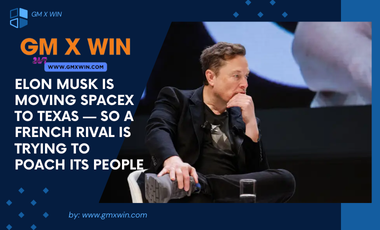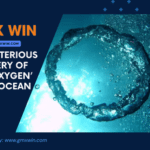The dynamic landscape of the aerospace industry has always been a hotbed of innovation, competition, and strategic moves. One of the most influential figures in this arena, Elon Musk, has been making headlines with his decision to move SpaceX operations to Texas. This move, driven by a combination of strategic, economic, and logistical reasons, has sent ripples through the industry. In response, a prominent French aerospace company is seizing the opportunity to poach SpaceX’s talented workforce. This article delves into the intricacies of this significant development, exploring the motivations behind SpaceX’s relocation, the French company’s recruitment strategies, and the broader implications for the aerospace industry.
The Rise of SpaceX
Founding and Vision
Space Exploration Technologies Corp., or SpaceX, was founded in 2002 by Elon Musk with the ambitious goal of reducing space transportation costs and enabling the colonization of Mars. Musk’s vision was to make space travel more accessible and sustainable, which has driven the company to achieve numerous milestones.
Achievements and Milestones
SpaceX has revolutionized the aerospace industry with several key achievements:
- Falcon 1 and Falcon 9: Successful development and launches of these rockets, with Falcon 9 becoming a workhorse for satellite deployment and ISS resupply missions.
- Reusable Rockets: Pioneering the concept of reusable rockets, significantly lowering the cost of space missions.
- Dragon Capsule: Development of a spacecraft capable of carrying cargo and crew to the International Space Station (ISS).
- Starlink: Launch of a satellite constellation to provide global internet coverage.
- Crewed Missions: Successful crewed missions to the ISS, marking a new era in human spaceflight.
Challenges and Innovations
Despite its successes, SpaceX has faced numerous challenges, including technical failures, regulatory hurdles, and intense competition. However, the company’s culture of innovation and rapid iteration has allowed it to overcome these obstacles and remain at the forefront of the industry.
The Decision to Move to Texas
Strategic Reasons
Elon Musk’s decision to relocate SpaceX operations to Texas is rooted in several strategic considerations:
- Proximity to Launch Sites: Texas hosts several key launch sites, including the Boca Chica launch facility, which is crucial for SpaceX’s Starship development.
- Regulatory Environment: Texas offers a more favorable regulatory environment compared to California, where SpaceX was originally headquartered.
- Business Climate: Texas has a business-friendly climate with lower taxes and incentives for companies in the aerospace sector.
Economic Factors
The economic advantages of relocating to Texas are significant:
- Lower Cost of Living: Texas has a lower cost of living compared to California, benefiting both the company and its employees.
- Tax Incentives: The state of Texas offers tax incentives for businesses, including property tax abatements and grants for job creation.
- Operational Costs: Lower operational costs, including real estate and utilities, make Texas an attractive location for SpaceX’s expansion.
Logistical Considerations
Logistics also play a crucial role in the decision:
- Supply Chain Efficiency: Proximity to suppliers and efficient transportation networks enhance supply chain management.
- Spaceport Access: Access to multiple spaceports in Texas streamlines launch operations and testing.
- Infrastructure: Texas has invested in infrastructure that supports aerospace activities, including advanced manufacturing facilities and research centers.
The French Rival’s Recruitment Drive
The Aerospace Landscape in France
France is home to a robust aerospace industry, with companies like Airbus, Safran, and Thales playing key roles in global aerospace manufacturing and technology development. The country has a long history of aerospace innovation and a highly skilled workforce.
The French Company’s Strategy
In light of SpaceX’s relocation, a prominent French aerospace company is attempting to capitalize on the situation by attracting SpaceX employees. The strategy includes:
- Competitive Compensation Packages: Offering attractive salary packages and benefits to lure talent.
- Career Development Opportunities: Highlighting opportunities for career growth and advancement within the company.
- Work-Life Balance: Emphasizing the quality of life in France, including work-life balance and cultural experiences.
- Relocation Assistance: Providing comprehensive relocation assistance to make the transition as smooth as possible for potential hires.
Targeting Key Talent
The French company is particularly interested in recruiting key talent from SpaceX, including engineers, scientists, and project managers with expertise in:
- Rocket Propulsion: Specialists in rocket propulsion systems and reusable technologies.
- Satellite Technology: Experts in satellite design, deployment, and operations.
- Software Development: Engineers skilled in developing software for aerospace applications.
- Project Management: Experienced project managers who can lead complex aerospace projects.
Implications for the Aerospace Industry
Talent Migration
The recruitment drive by the French company highlights the growing competition for top talent in the aerospace industry. Talent migration can lead to a redistribution of skills and knowledge, influencing innovation and development across the sector.
Innovation and Collaboration
The movement of talent between companies and countries can foster innovation through the exchange of ideas and expertise. Collaborative projects and partnerships may emerge, driving advancements in aerospace technology.
Economic Impact
The relocation of SpaceX and the subsequent recruitment efforts by the French company have broader economic implications. Regions benefiting from new investments and job creation can experience economic growth, while areas losing talent may face challenges.
Regulatory and Policy Considerations
The competitive dynamics in the aerospace industry may prompt regulatory and policy adjustments. Governments may introduce new incentives to attract and retain aerospace companies and talent, shaping the future landscape of the industry.
The Future of SpaceX in Texas
Expansion Plans
SpaceX’s move to Texas is expected to be accompanied by significant expansion plans, including:
- Starship Development: Accelerating the development and testing of the Starship spacecraft for missions to Mars and beyond.
- Manufacturing Facilities: Establishing advanced manufacturing facilities for rocket components and spacecraft.
- Research and Development: Investing in research and development to drive innovation in aerospace technology.
Community Impact
SpaceX’s presence in Texas is likely to have a positive impact on local communities, including:
- Job Creation: Generating new jobs and economic opportunities in the region.
- Education and Training: Collaborating with educational institutions to develop training programs and inspire the next generation of aerospace professionals.
- Community Engagement: Engaging with local communities through outreach programs and initiatives.
Challenges and Opportunities
While the move presents numerous opportunities, SpaceX may also face challenges, such as:
- Infrastructure Development: Ensuring the necessary infrastructure is in place to support operations.
- Workforce Integration: Integrating new employees and maintaining company culture.
- Regulatory Compliance: Navigating regulatory requirements and ensuring compliance with local laws and regulations.
Conclusion
The decision by Elon Musk to relocate SpaceX to Texas is a strategic move with far-reaching implications for the aerospace industry. As a French rival seizes the opportunity to poach SpaceX’s talent, the competitive dynamics in the industry are set to intensify. This development underscores the importance of talent, innovation, and strategic positioning in the ever-evolving aerospace sector. As SpaceX embarks on its new chapter in Texas, the industry will be watching closely to see how these changes shape the future of space exploration and technology.



